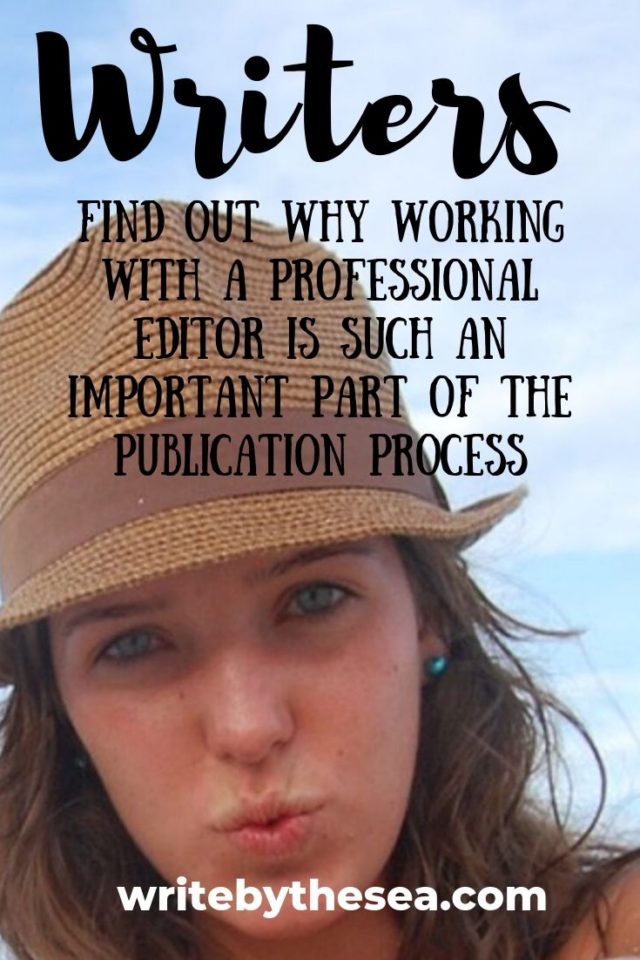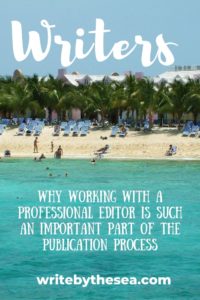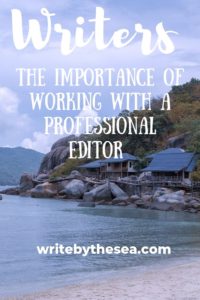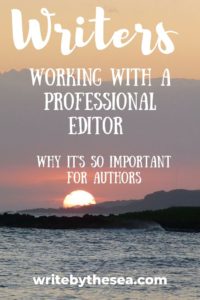Working with an Editor Should Be Part of the Publishing Process for Any Author
When you’ve taken the time, sometimes months (or even years!) to complete your first novel, you experience a range of emotions—pride, elation, joy.
You are often also pretty impressed with yourself for doing the big job you’ve wanted to do for a long time.
Good for you!
However, it’s important not to let your temporary success convince you your book is ready for your reading public.
It’s not.
A lot goes into creating a great story.
Elements like story arc, character arcs, plot, sub-plots, tension, pacing, tone, appropriateness for the genre, and resolution are only some of them.
Sentence structure, dialogue, grammar, and punctuation also have to be correct.
Even once those issues have been taken care of, there may be concepts you’ve overlooked, or facts that are fuzzy or incorrect.
Just the Start of the Journey
Completing the first draft of your story is just the start of the journey.
You must now work with a professional editor.
I can’t emphasize this enough.
Even New York Times multi-published authors have editors.
Why would a beginner think she doesn’t need one? (Asking your mother/sister/girlfriend to read and comment on your book is not the same thing.)
Unfortunately, what I have sometimes encountered with a client is that he/she will not listen to my editorial suggestions.
His or her ego is so invested in preserving the self-image of a great writer, that taking critique from anyone else would mean admitting that the book may need work.
Your Baby is Ugly
Look at it this way: You’ve just given birth to a baby and to you this baby is the most beautiful creature ever born.
Your editor has to be the one to tell you that your baby is not as pretty as you think she is, and that her diaper is messy and her face needs washing.
You have two choices now.
You can fight and argue to preserve your personal vision that your baby is beautiful.
Or, you can take an objective look at your child and admit that someone else might offer a valuable opinion that in the end will make your baby truly beautiful to others (and not just you).
While you don’t have to agree with everything your editor suggests, she will see things that you don’t because she is not as close to the work as you.
Her goal is to make your writing look good, and therefore make you look good as the author.
Remember that the writer-editor relationship is a collaborative one, not an adversarial one.
These days you can publish without working with professionals.
You can publish without having an editor, or a book designer, or a cover designer – but let me assure you, it shows.
If you want to succeed in a writing career, you will have to adopt a certain amount of objectivity about your work and be able to accept editorial direction from your editor.
In the end you’ll be glad you did.
About Wendy Dewar Hughes
 Wendy Dewar Hughes writes award-winning inspirational suspense novels, and sweet romances set in contemporary times.
Wendy Dewar Hughes writes award-winning inspirational suspense novels, and sweet romances set in contemporary times.
Her fiction inspires and entertains readers with compelling plots, fascinating characters, and satisfying romance—page-turning fiction that is fast-paced and exciting with unexpected sparks of humor.
She also writes non-fiction on spiritual and personal interest topics as well as business subjects.
Find out more about her books at www.wendydewarhughes.com.
Don’t forget to join our mailing list.
Just fill in your name and email address, below:








